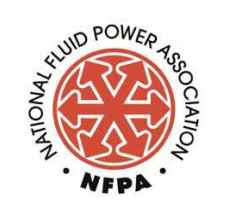NFPA Seeks Engineers for ISO Development
 The National Fluid Power Association is looking for engineers to participate in the development of ISO standards.
The National Fluid Power Association is looking for engineers to participate in the development of ISO standards.
NFPA holds the secretariat of ISO Technical Committee 131, fluid power systems, and is responsible for 225 published ISO standards, of which 44 projects are currently under development.
NFPA members are invited to volunteer as experts on one or more of the TC 131 subcommittees at both the national and international level.
One of the strengths of ISO standardization is that the standards are created by the people who need them. In the United States, 153 industry experts participate on 11 technical advisory groups to drive all aspects of the standards development process, from deciding whether a new standard is needed to defining the technical content.
ISO standards, technical specifications, and technical reports play a key role in fluid power technology. Designing, assembling, and maintaining a hydraulic or pneumatic system often involves putting together a variety of components, often from a variety of suppliers. Without standards for dimensional interchangeability, performance measurement and communication, safety requirements, and testing and inspection methods, these processes would be much more difficult.
Standards benefit users because they:
- simplify the use of fluid power;
- help educate users on how to correctly size and apply products;
- determine product performance and how it is measured, allowing comparison;
- communicate needs in a commonly understood language; and
- are written with input from users.
Standards benefit manufacturers because they:
- provide uniform methods for testing products and advertising their ratings;
- help to assure system integrity and safety in the application of fluid power;
- help to improve efficiency of fluid power products and systems;
- simplify the variety of products and sizes in the marketplace;
- encourage new product development; and
- help avoid confusion in communicating with customers.
Standards for fluid power products and systems fall into three basic categories:
- Communication standards define the basic terms, symbols and other communication tools used in the fluid power industry. Vocabularies, graphic symbols, and dimension codes are typical subjects for communication standards.
- Design standards establish dimensions, tolerances, or other physical characteristics of products. They ensure that fluid power products meet dimensional criteria that enable interfacing and interchangeability.
- Performance standards provide a voluntary method of rating products. Pressure rating, particle counting methods used in contamination analysis, and methods of testing for strength and volume are typical performance standards.
Involvement in the process can bring significant advantages to participating individuals and businesses alike, including:
- having early access to information that could shape the market in the future;
- giving your company a voice in the development of standards; and
- helping to keep market access open.
Getting involved in standards development brings your concerns and needs to bear on the process that can affect you and your customers in the future.
To get involved, contact Denise Husenica at (414) 778-3354 or email dhusenica@nfpa.com.







